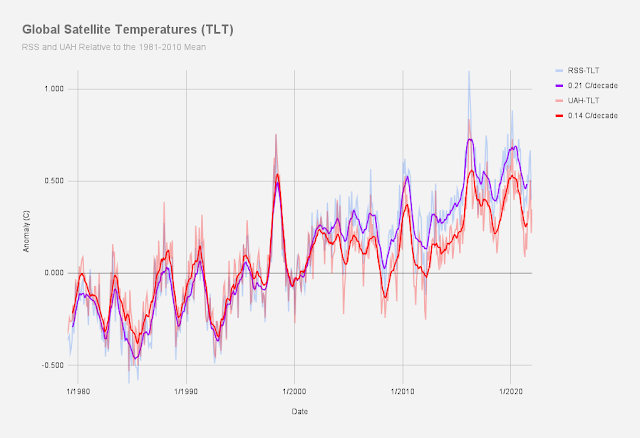2024 Satellite Temperature
%20(3).png)
The December 2024 data from RSS was just made available, so I thought I'd put together some summary graphs for RSSv4 and UAHv6.1. The 2023-2024 warming spike was more pronounced in satellite data, which is intriguing. But RSS continues to show more warming than UAH. Here are trends for the full dataset and the last 30 years: 1979 - 2024 Trends UAH: 0.153 ± 0.012°C/decade (2σ) RSS: 0.230 ± 0.012°C/decade (2σ) 1995-2024 Trends UAH: 0.162 ± 0.025°C/decade (2σ) RSS: 0.249 ± 0.024°C/decade (2σ) These trends seem pretty disparate from each other (RSS shows ~50% more rapid warming), and my uncertainty calculation doesn't account for all the sources of error in these datasets. Most importantly (as I share here ), difficulties with satellites beginning around 1998 were resolved in different ways between RSS and UAH. The decisions made by each explain a good portion of the disagreement between them (they can be seen between 1998 and 2004 below), and that is not factored in to the abov...

